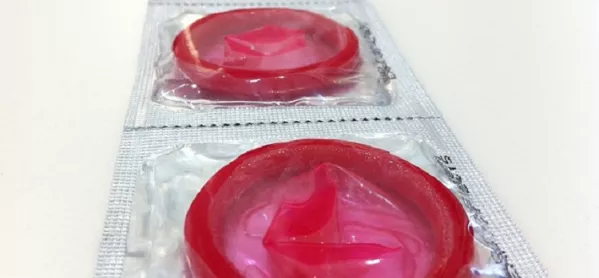Think about how big a topic sex and relationships is. It’s about how we feel about ourselves, our identities, our bodies and our confidence. It’s also about friendship, abuse, romance, desire, communication, the law, privacy, bullying and many other topics.
Yet, with so much to teach, there isn’t nearly enough sex and relationships education (SRE) in the timetables in schools. Schools that deliver it well don’t usually do more than six weeks a year, and even this is rare. Most commonly, schools teach a couple of lessons a year or maybe a morning of lessons off the timetable.
With such little SRE in the timetable, teachers or outside specialists are understandably tempted to keep their lessons down to a couple of key take-home messages. Messages such as:
- women will get pregnant if they have sex without contraception;
- STIs are harmful: avoid them at all costs;
- if someone says “no”, and you have sex, it’s rape or sexual assault;
- you need to learn how to say “no”;
- women should expect sex to hurt for the first time;
- sex will be fine if you find “the one”.
On the face of it, these messages seem very sensible. However, if we stick to these narrow key messages, then young people might learn that:
- the only kind of sex that counts is penis-in-vagina sex - it’s expected that you will do this. If you have this sex, you will get pregnant;
- sex is inherently dangerous and people with STIs should be avoided, blamed or shamed;
- consent is simply about not committing rape and doesn’t apply to any other sexual touching, coercion, sexting or harassment;
- if someone doesn’t learn how to say “no” then they are at fault (and “I don’t want to” or “Can we do something else?” or “Not right now” don’t count as “no”);
- sex is only, and always, pleasurable for men. Only straight couples have sex. Only women have vaginas;
- if someone loves you, then sex is always safe, enjoyable and consensual and you have to do it if you are in love.
As you can see, these unintended learning outcomes could end up doing more harm than good. Their focus on penis-in-vagina sex makes anyone who doesn’t want to have that kind of sex, or any kind of sex, excluded. For people who may have that kind of sex, it paints a grim picture - STIs, unplanned pregnancy and even pain.
It can easily stigmatise people who don’t have sex, or people who have different kinds of sex, or people who are not meant to have sex.
Not a matter of ‘yes’ or ‘no’
Consent is seen as something which is only about saying “yes” or “no”. This suggests that negotiations about sex and relationships take place on a level playing field where no one has more power than another (when, in fact, power imbalances are inevitable), and that consent isn’t an issue in loving relationships, or even at school.
These over-simplified messages also don’t give young people the opportunity to learn skills, to talk to each other, to challenge each other and to be critical of the topic.
Quite frankly, young people are bored of this kind of sex education. Young people are sick of being talked at and told what to think, without being given useful tools to work out the big issues for themselves. They’re sick of the expectations placed on them around sex and gender; whether they want to have sex, what sex is, what a healthy relationship looks like, what consent feels like and the many different ways to reduce the physical and emotional risks of sex.
No ‘sexpertise’ needed
So what’s the answer? In addition to supporting the specialist organisations that can deliver this work to a high quality, we need to create more time for SRE, and increase the number of people who feel confident delivering it. This sounds daunting, but teaching good SRE isn’t about being a “sexpert”, knowing all the answers or even knowing all the right words. It’s just about good teaching skills: encouraging students to think critically, to talk to each other and to be able to work stuff out for themselves. Much of this can actually be covered in other subjects too: it must be very hard to avoid talking about sex or relationships in English literature, media studies or sociology, for example.
A good starting point for those new to SRE is Do…SRE for Schools - a comprehensive free resource with guides to delivering good sex and relationships education, in and out of the classroom. It contains a wealth of materials to help teachers feel more confident, and a set of lesson plans which can be taught using the skills and experience that teaching staff already have.
Additionally, there are also national charities and organisations such as Brook, FPA, Sexpression and the National Aids Trust, which can offer further specialist support.
Justin Hancock is a sex and relationships educator, online at bishUK.com and in person at bishtraining.com. He tweets as @bishtraining
Want to keep up with the latest education news and opinion? Follow TES on Twitter and like TES on Facebook
